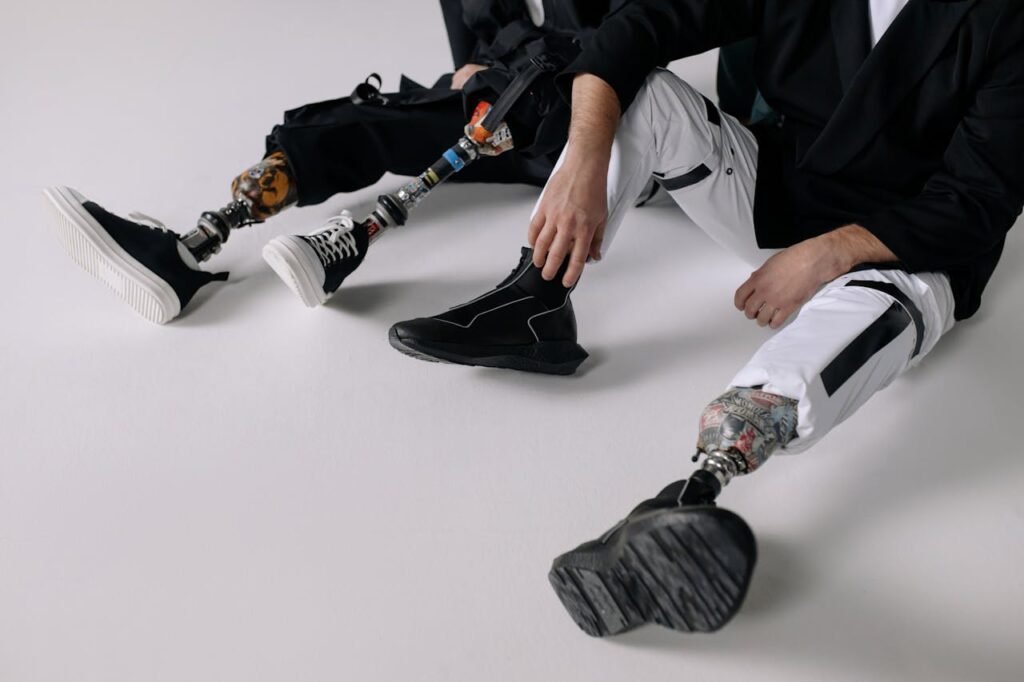Life with a disability can bring unique challenges, but it can also be a journey filled with resilience, strength, and growth. One of the most critical factors in navigating this path is having a strong support network. A support network is not just a safety net; it’s a system of encouragement, assistance, and shared understanding that empowers you to lead an independent and fulfilling life.
Whether you’re seeking emotional support, practical help, or opportunities to connect with others who share similar experiences, building a robust network is essential. This guide explores actionable steps to help you create a support system tailored to your needs, helping you thrive in every aspect of your life.
Understanding the Importance of a Support Network
A support network goes beyond just having people to rely on; it’s about creating meaningful relationships and access to resources that enhance your quality of life. For a person with a disability, this network might include family, friends, healthcare professionals, advocacy groups, or online communities.
Emotional Support
Emotional well-being is often overlooked but plays a crucial role in managing the ups and downs of life with a disability.
A strong support network offers a safe space where you can express yourself, share your feelings, and find encouragement when faced with challenges. These relationships help reduce feelings of isolation and provide a sense of belonging.

Practical Assistance
Support networks also provide practical assistance in day-to-day life. This might include help with transportation, navigating healthcare systems, or adapting to new environments.
Having people who understand your needs and are willing to assist ensures you can focus on your goals without feeling overwhelmed by logistical barriers.
Advocacy and Empowerment
A well-rounded support network isn’t just about receiving help—it’s also about finding ways to empower yourself.
Through connections with advocacy groups, disability rights organizations, or mentors, you can gain the tools and confidence needed to advocate for your rights, access resources, and create positive change in your community.
Starting with Your Inner Circle
Your closest relationships often form the foundation of your support network. Family members, friends, and partners can provide both emotional and practical support, offering stability as you navigate challenges.
Building Open Communication
The key to leveraging your inner circle is open communication. Share your needs, challenges, and goals with the people closest to you. This transparency helps them understand how they can support you effectively. It also strengthens your bond by fostering trust and mutual respect.
For example, if you’re adjusting to a new prosthetic limb or learning to navigate a new routine, explaining your experience to your loved ones can help them provide targeted support, whether it’s offering a listening ear or helping with specific tasks.
Encouraging Active Participation
While your inner circle may be eager to help, they might not always know how. Encourage active participation by inviting them to learn more about your disability or join you in activities that build understanding.
This might involve attending a medical appointment together, participating in adaptive sports, or simply engaging in a meaningful conversation about your daily experiences.
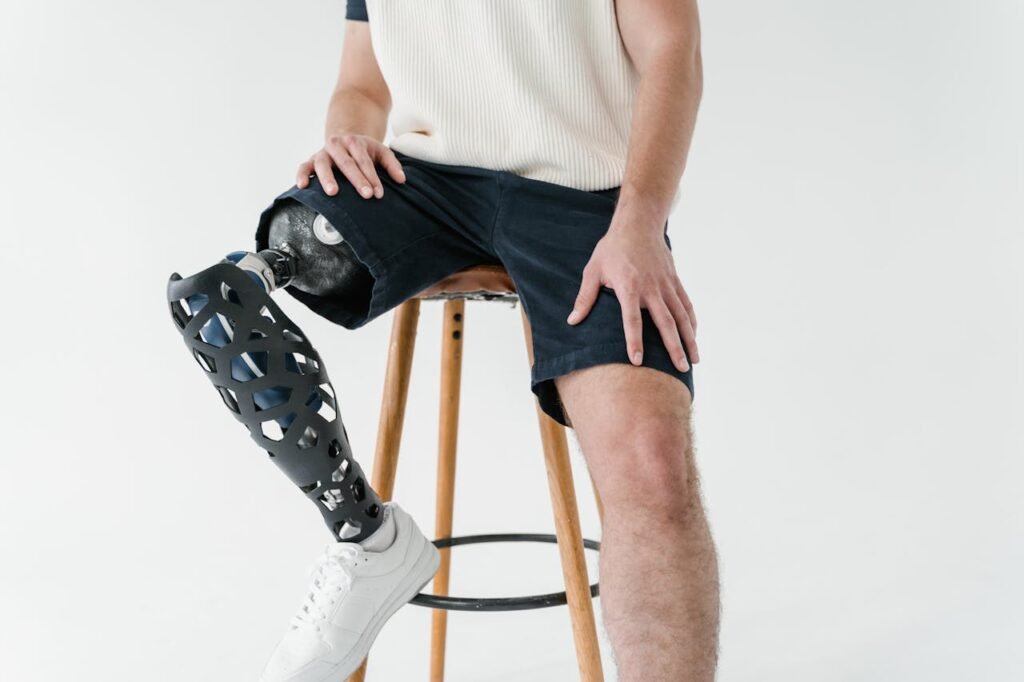
Expanding Beyond Your Inner Circle
While your inner circle forms the foundation of your support network, broadening your connections can significantly enhance the depth and diversity of the resources available to you. Building relationships with professionals, peers, and community organizations opens doors to new opportunities and perspectives that can enrich your life.
Connecting with Healthcare Professionals
Healthcare professionals play a pivotal role in supporting individuals with disabilities. This includes doctors, therapists, rehabilitation specialists, and social workers who are trained to address your specific needs. Developing strong relationships with these experts ensures you have access to advice, treatment, and resources tailored to your situation.
To build these connections, take an active role in your healthcare journey. Attend appointments prepared with questions, seek second opinions when necessary, and stay informed about your options.
Over time, these interactions help establish a collaborative relationship, allowing your healthcare team to become an integral part of your support system.
Joining Disability Support Groups
Connecting with people who share similar experiences can be incredibly empowering. Support groups provide a space to exchange advice, share stories, and learn from others who understand your journey.
Whether in person or online, these groups can offer emotional reassurance and practical tips that make navigating life with a disability easier.
When seeking a support group, look for one that aligns with your goals and interests. Some groups may focus on specific disabilities, while others address broader topics like accessibility, employment, or personal growth.
Regular participation fosters meaningful connections and a sense of belonging that strengthens your overall support network.
Engaging with Advocacy Organizations
Advocacy organizations are a valuable resource for individuals with disabilities, offering access to legal advice, employment services, and educational programs. These organizations work to address systemic barriers and promote inclusivity, creating opportunities for personal and professional growth.
Becoming involved with an advocacy group not only connects you with resources but also empowers you to become a voice for change. Volunteering, attending events, or participating in campaigns can help you build relationships while contributing to a larger movement that benefits the entire disability community.
Leveraging Technology to Build Connections
Technology has revolutionized the way we connect with others, and it plays a significant role in creating support networks for people with disabilities. From social media platforms to specialized apps, technology offers tools to bridge gaps and foster meaningful relationships.
Exploring Online Communities
Online communities provide a wealth of opportunities to meet people with shared experiences. Platforms like Facebook, Reddit, and dedicated forums host groups where individuals discuss challenges, share solutions, and celebrate milestones.
These spaces often feel less intimidating than in-person interactions, making them an excellent starting point for building connections.
When participating in online communities, focus on those that prioritize respect and inclusivity. Engage actively by sharing your experiences, asking questions, and offering support to others. Over time, these interactions can evolve into friendships or partnerships that extend beyond the virtual world.
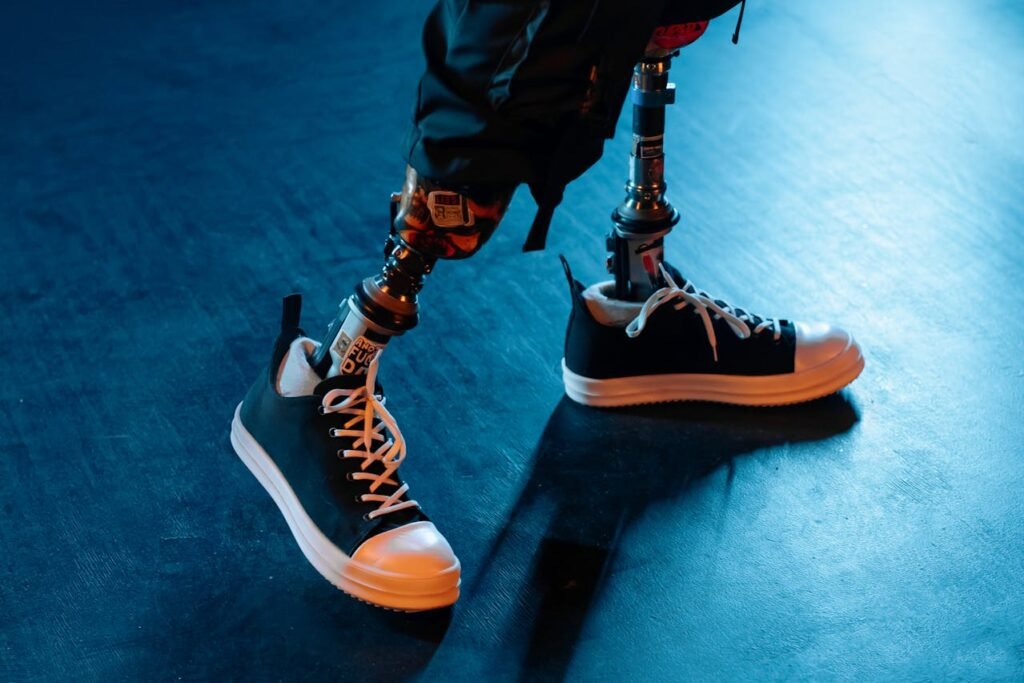
Using Accessibility Apps
There are numerous apps designed to enhance accessibility and foster connections for individuals with disabilities. For example, apps that locate accessible venues, provide communication aids, or connect users with local resources can significantly improve your ability to navigate daily life and build relationships.
Businesses and organizations that develop these tools often collaborate with users to ensure they address real needs. Providing feedback or participating in beta testing not only helps improve these technologies but also strengthens your relationship with the companies and communities behind them.
Engaging with Local Communities
While online platforms and specialized groups are invaluable, engaging with your local community creates tangible connections that can support you in your day-to-day life. From recreational activities to neighborhood organizations, there are numerous ways to establish relationships that foster a sense of belonging and shared purpose.
Participating in Local Events
Local events such as workshops, cultural festivals, or community gatherings provide opportunities to meet people and discover shared interests.
These settings encourage organic interactions that can evolve into lasting connections. Additionally, attending disability-focused events or adaptive sports programs introduces you to individuals who may already have an understanding of your experiences.
For businesses and organizations, hosting accessible events demonstrates inclusivity and offers platforms for individuals with disabilities to connect. Attending these events not only enhances your network but also fosters partnerships with local entities that value accessibility and community engagement.
Volunteering and Giving Back
Volunteering in your community allows you to build meaningful relationships while contributing to causes you care about. Whether it’s helping at a local shelter, mentoring students, or participating in environmental initiatives, volunteering highlights your strengths and creates opportunities to meet like-minded individuals.
For people with disabilities, volunteering can also challenge stereotypes and showcase your capabilities. This proactive approach to community involvement builds your confidence and establishes you as an active, valued participant in the community.
Sustaining and Strengthening Your Network
Building a support network is only the first step; maintaining and strengthening it over time ensures its lasting impact. Relationships require nurturing, and actively engaging with your network fosters mutual respect and support.
Prioritizing Regular Communication
Staying connected with your support network is essential for its growth. Schedule regular check-ins with friends, family, and professionals to share updates and seek advice. Even small gestures, like sending a message or sharing a milestone, show that you value the connection and keep relationships strong.
For businesses, maintaining communication with your clients fosters loyalty and trust. Sending newsletters, offering new resources, or hosting follow-up events demonstrates your ongoing commitment to supporting individuals with disabilities.
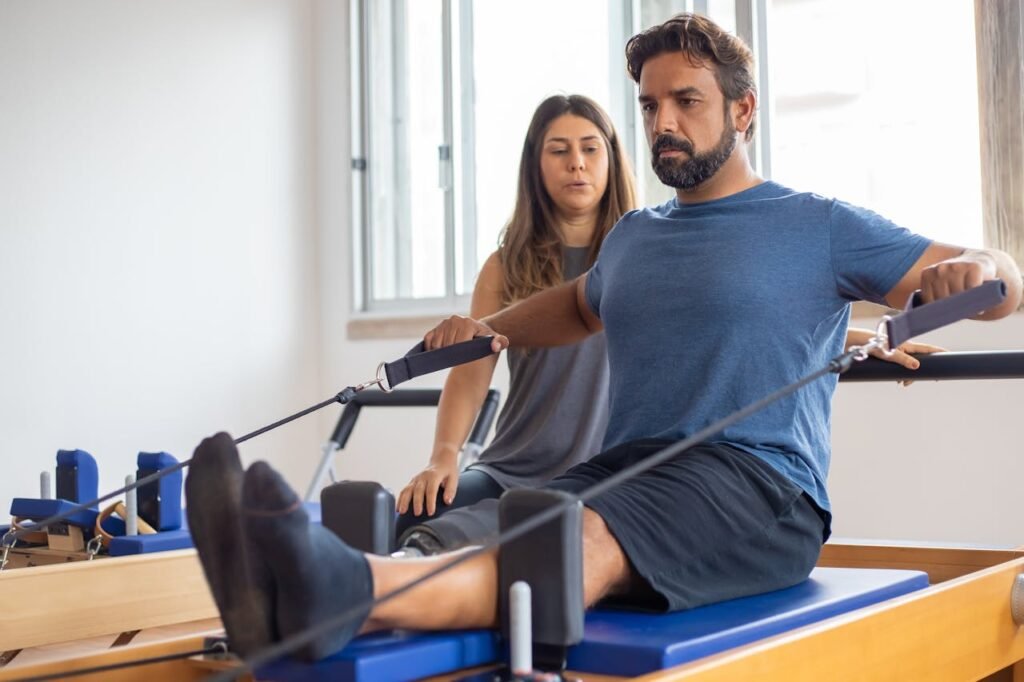
Celebrating Shared Successes
Celebrate the achievements of those in your network, whether it’s a personal milestone, a professional accomplishment, or overcoming a challenge. Recognizing others’ successes strengthens bonds and creates a positive environment where support feels reciprocal.
Similarly, don’t hesitate to share your own victories with your network. Sharing your journey inspires others, encourages collaboration, and highlights the collective strength of your community.
The Role of Businesses and Organizations
Businesses and organizations play a crucial role in facilitating support networks for individuals with disabilities. By offering accessible services, creating inclusive opportunities, and fostering community connections, they contribute significantly to empowering their customers and clients.
Designing Accessible Products and Services
Accessibility is a cornerstone of support. Businesses that prioritize accessibility in their products, services, and physical spaces enable individuals with disabilities to participate fully in society. This includes offering adaptive tools, ensuring barrier-free environments, and providing clear, inclusive communication.
As an individual, supporting businesses that value accessibility strengthens your network and reinforces their commitment to inclusivity. Collaborating with these companies, whether through feedback or advocacy, creates partnerships that benefit the wider community.
Facilitating Community Building
Organizations that host events, workshops, or forums for individuals with disabilities create invaluable opportunities for connection. These spaces allow individuals to share experiences, gain resources, and build relationships that extend beyond the organization itself.
When attending such events, approach them as opportunities to learn, engage, and contribute. By actively participating, you build trust with the organizers and attendees, solidifying your place in a broader network of support.
Navigating Challenges in Building a Support Network
While building a support network is invaluable, it’s not without challenges. Understanding potential obstacles and developing strategies to address them can make the process smoother and more rewarding. Whether it’s overcoming societal stigma, dealing with misunderstandings, or finding the right connections, persistence and adaptability are key.
Addressing Stigma and Misconceptions
Unfortunately, individuals with disabilities often face societal stigma or misunderstandings about their abilities and needs. These barriers can make it difficult to establish genuine connections. Tackling stigma starts with educating those around you about your experiences and advocating for inclusivity.
For businesses and organizations, actively promoting awareness and offering sensitivity training to staff ensures they become allies in creating inclusive environments.
For individuals, practicing self-advocacy by sharing your story and highlighting your unique strengths can break down misconceptions and foster understanding.
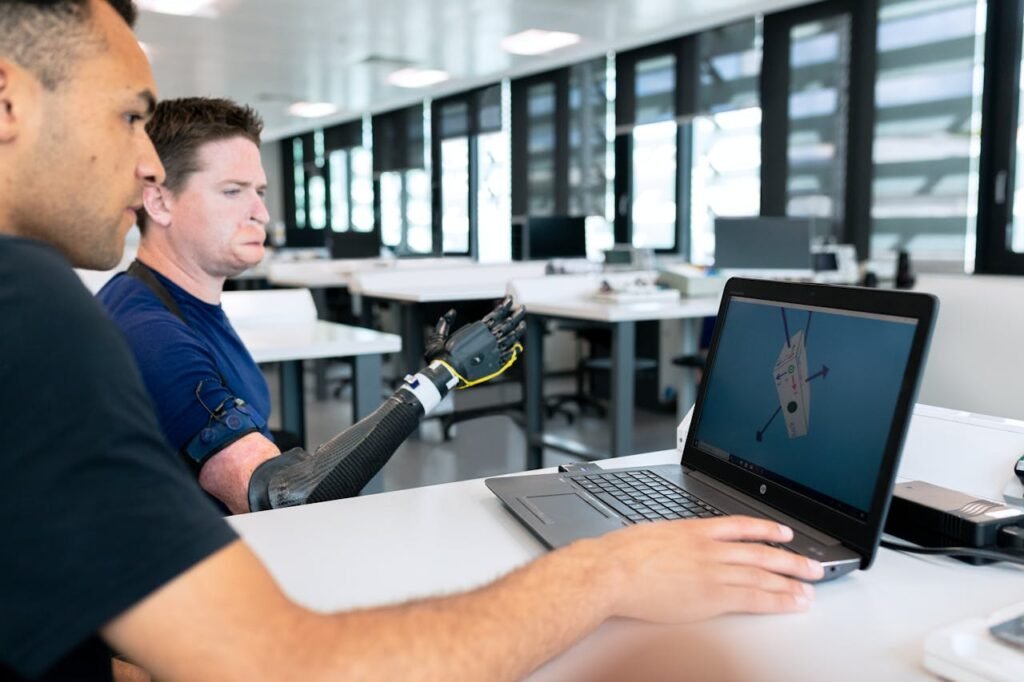
Overcoming Feelings of Isolation
For some, building a support network may feel daunting due to past experiences of isolation or a lack of confidence in social settings. It’s important to recognize that building connections takes time and that small, consistent efforts can lead to meaningful relationships.
Start by identifying environments where you feel most comfortable, such as a local community center or an online forum dedicated to shared interests. Engaging in activities you enjoy naturally facilitates connections with like-minded individuals, creating opportunities to form bonds at your own pace.
Finding the Right Resources
Another challenge in building a support network is navigating the abundance of available resources to find those that align with your needs. With so many organizations, platforms, and tools available, it can feel overwhelming to determine which ones are genuinely helpful.
To overcome this, focus on reputable sources or seek recommendations from trusted individuals, such as your healthcare provider or existing support network. Researching organizations with proven track records of serving individuals with disabilities ensures you’re accessing reliable and effective support.
The Role of Self-Care in Strengthening Your Network
Building a support network is not just about external connections; it’s also about maintaining your emotional and physical well-being. Self-care is a vital component of nurturing relationships and ensuring you have the energy and resilience to engage meaningfully with others.
Prioritizing Your Needs
While a support network is there to assist, it’s essential to prioritize your own needs and boundaries. Communicate clearly about what you require and what you’re comfortable contributing to the relationship. Being honest about your limitations ensures that your interactions remain positive and sustainable.
For businesses, respecting individual needs by offering flexible options—such as tailored services or accommodating schedules—creates a supportive environment where users feel valued and understood.
Recognizing When to Step Back
Not every relationship within your support network will be a perfect fit, and that’s okay. It’s important to recognize when certain connections are no longer serving your needs or are causing unnecessary stress. Stepping back from these relationships allows you to focus on those that bring value and positivity to your life.
Similarly, businesses and organizations should strive for consistent quality in their offerings to maintain trust and engagement with their audience. Addressing user feedback promptly and transparently ensures that your services remain relevant and effective.
Building a Legacy of Support
As you grow and strengthen your support network, there’s an opportunity to give back and create a legacy of support for others. Sharing your experiences, mentoring others, or advocating for improved accessibility and inclusivity ensures that your journey has a lasting impact on your community.
Becoming a Mentor
Mentorship is a powerful way to support others while reinforcing your own growth. By sharing your insights and lessons learned, you can guide others as they navigate similar challenges. This reciprocal relationship benefits both the mentor and the mentee, fostering mutual growth and understanding.
For businesses, establishing mentorship programs within their networks provides users with an additional layer of support while demonstrating a commitment to long-term success.
Advocating for Change
As someone who has built a robust support network, you’re uniquely positioned to advocate for systemic changes that improve accessibility and inclusion for all.
Whether it’s pushing for policy changes, promoting inclusive practices in workplaces, or contributing to awareness campaigns, your voice can drive meaningful progress.
Collaborating with advocacy groups, businesses, or policymakers amplifies your impact and ensures that future generations benefit from the advancements you help create.

Strengthening the Bonds of Community
The foundation of any support network is the sense of community it fosters. Whether through one-on-one relationships or larger collective efforts, these bonds create a web of mutual understanding and empowerment. As you nurture your support network, focus on building authentic, lasting connections that enrich both your life and the lives of others.
Cultivating Shared Goals
A thriving support network is often united by shared goals or values. By aligning with people and organizations that champion inclusivity, empowerment, and progress, you reinforce the purpose of your network.
This collective focus not only strengthens your personal connections but also drives broader societal change.
For businesses, promoting initiatives that align with these values strengthens your relationship with the disability community. Hosting events, supporting causes, or creating products that advance accessibility ensures your role as a vital contributor to this shared mission.
Celebrating Diversity
Each member of your support network brings unique perspectives and strengths. Embracing diversity within your network enhances your experience and broadens your understanding of the world. Whether it’s cultural, experiential, or professional diversity, these differences enrich your interactions and create a more resilient and adaptive support system.
Businesses that prioritize diversity in their offerings and workforce foster a more inclusive environment, ensuring that all users feel represented and valued. Highlighting these efforts in your messaging demonstrates a genuine commitment to the community.
Conclusion
Creating a support network as a person with a disability is about more than overcoming challenges—it’s about unlocking opportunities, forging meaningful relationships, and living a life filled with purpose and connection. This journey is not a solitary one but a collective effort that involves family, friends, professionals, and communities working together to create a supportive environment.
For individuals, this process begins with small steps: reaching out, engaging, and nurturing relationships that empower you to thrive. With time and effort, these connections evolve into a robust network that offers both strength and flexibility, adapting to your needs as they grow and change.
For businesses and organizations, the role you play in facilitating these networks is transformative. By prioritizing accessibility, inclusivity, and active engagement, you become more than a service provider—you become an integral part of the community you serve. Your efforts not only empower individuals but also contribute to a broader culture of support and understanding.
The act of building a support network is a testament to resilience and humanity. It is a declaration that no one should face life’s challenges alone and that together, we can create a world where everyone has the tools, connections, and opportunities they need to succeed. Through mutual care and collaboration, we can ensure that every step forward is a step taken together.



